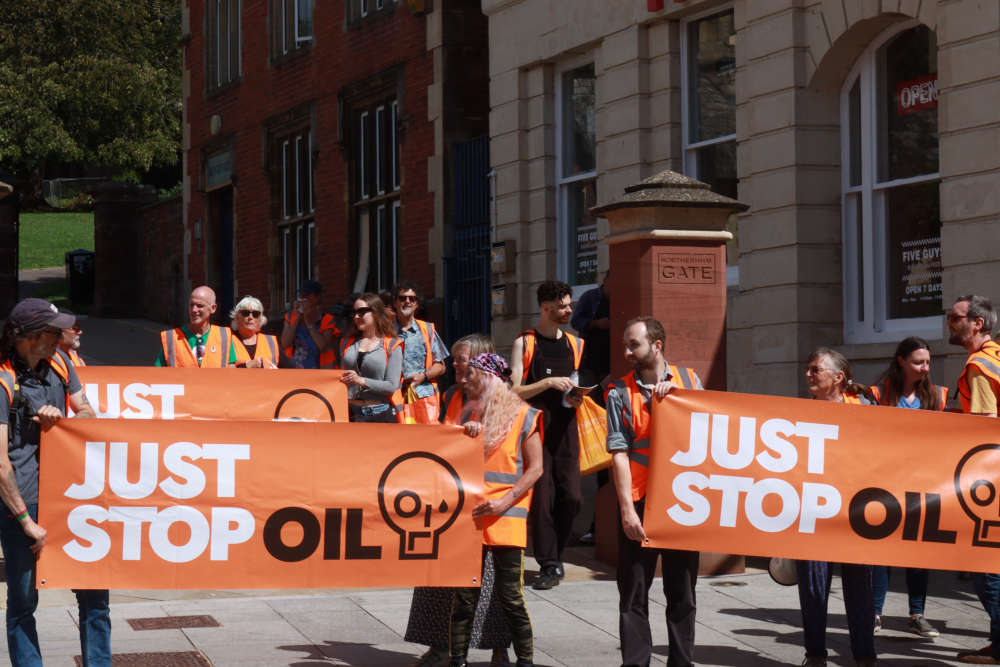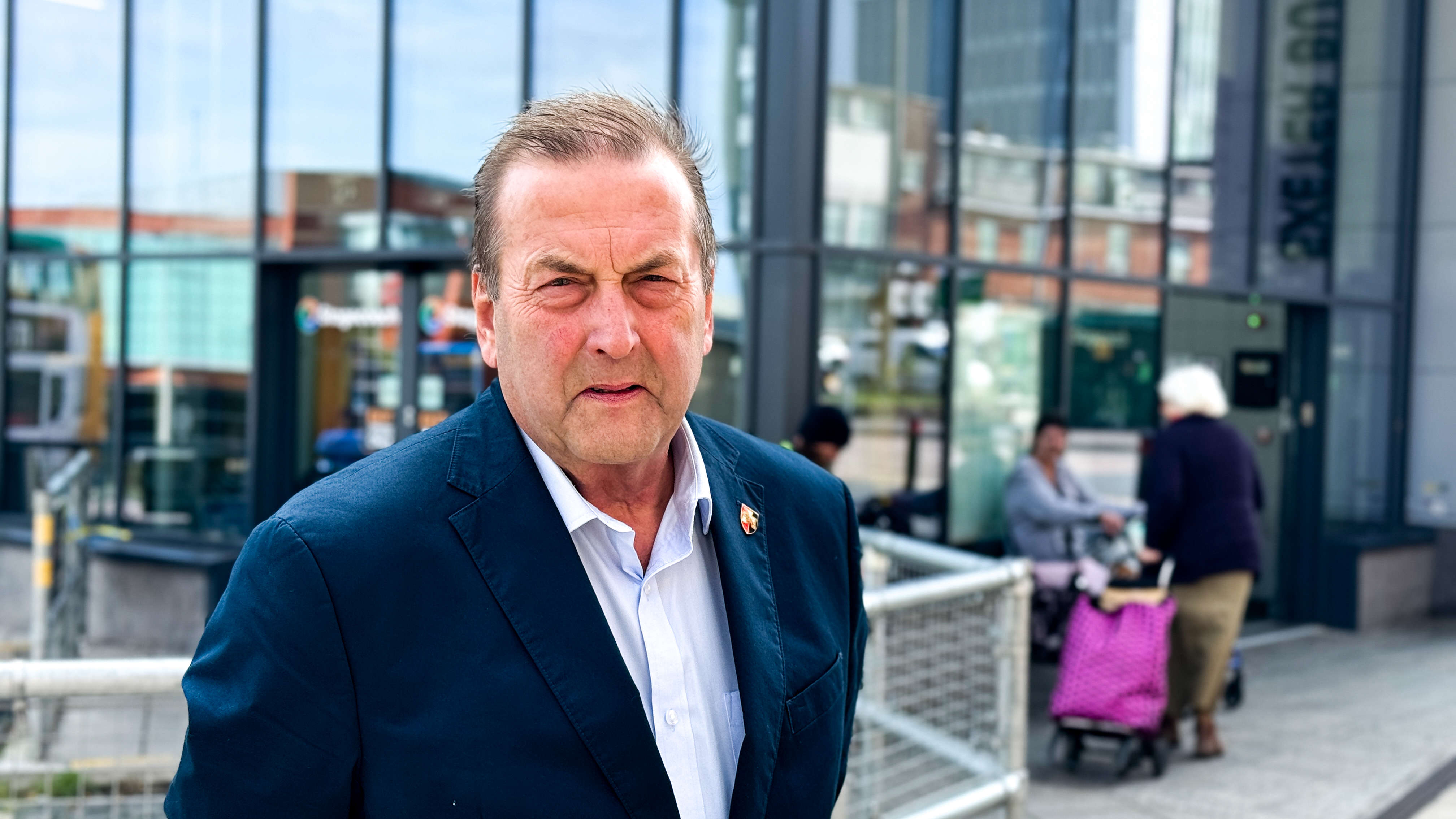
They're asked to use the pavement
Anti-fossil fuel protesters have 'slow-marched' through Exeter city centre, where they were asked to use the pavement rather than the road by police.
It took an hour to progress from Sidwell Street to Northernhay Gardens via Queen Street, but after 15 minutes, officers issued what's known as a section 12 Public Order Act notice to get them on the pavement.
The protestors haven't said whether the notified the police or council about the march to avoid such action, but they seem a bit cross about it. They say: "These powers are intended to prevent ‘serious disruption to the life of the community’, although the roads were quiet and buses could easily pass the slow march. Police then directed supporters onto the pavements and the march continued through the crowded Princesshay shopping centre."
They say the protest, which involved about 30 people, was "civil resistance to end new oil, gas and coal," and that buses had room to get past them.
Gilly Robinson, 59, from Dawlish who was on the march said:“I was evacuated from my home in Dawlish twice during the storms of February 2014.The sea wall was breached and the railway line in front of my house left dangling. Climate change? Can’t prove it. But highly likely...Honestly? I’m terrified. And this is why I slow-march.”
Maurice Spurway, a 69-year-old grandfather from Exeter said: “We are on the brink of climate collapse, and the government still refuses to listen to the science. It’s ignoring its own advisors in maxing out on fossil fuels. Cheaper, safer and faster alternatives exist, and it seems that only civil disobedience will force the government to see sense. I don’t like disrupting people's lives, but I don’t know what else I can effectively do.”
Just Stop Oil is hosting a talk at the Exeter Phoenix at 6.30pm on Monday 21 August.
 Chief constable won't be prosecuted
Chief constable won't be prosecuted
 Pop-up market proposal for Exeter city centre
Pop-up market proposal for Exeter city centre
 'Bad deal' blast over Churston solar farm
'Bad deal' blast over Churston solar farm
 Bovey Tracey holiday homes plan rejected
Bovey Tracey holiday homes plan rejected
 Broadside for 'incongruous' Kingsbridge waterside home
Broadside for 'incongruous' Kingsbridge waterside home
